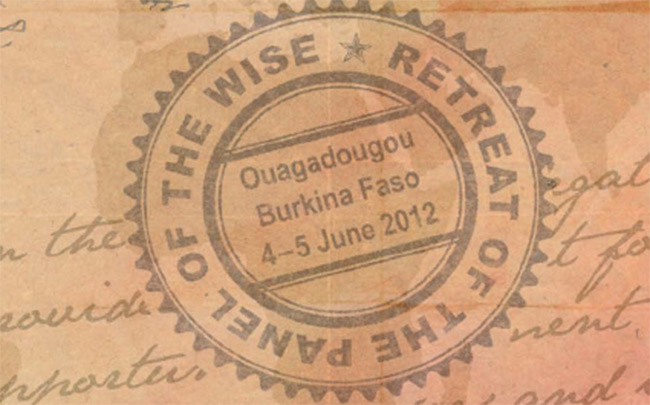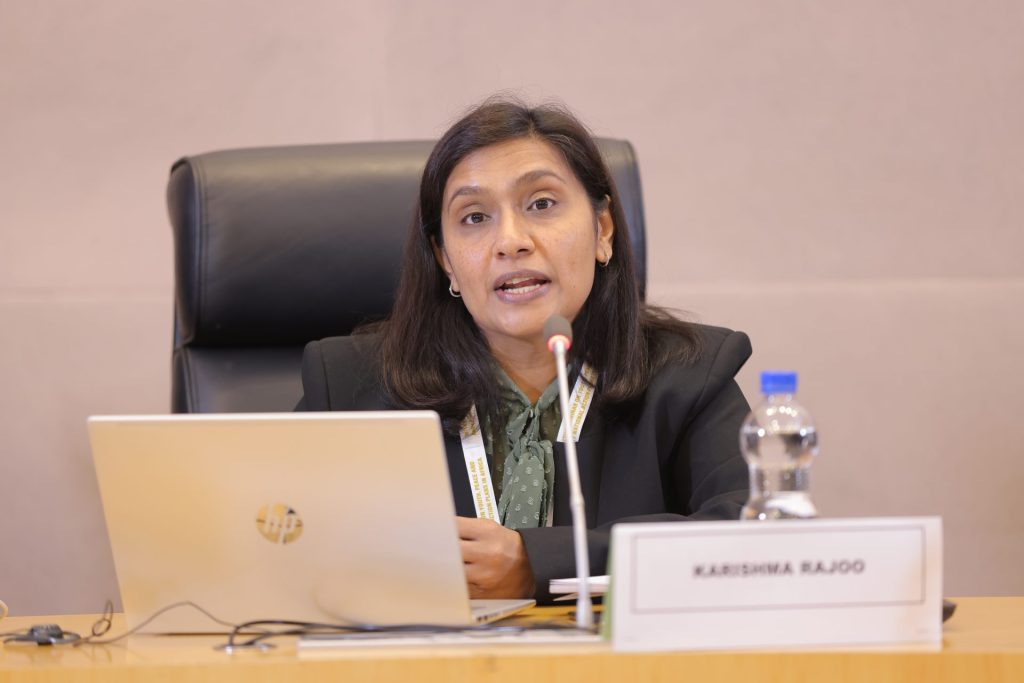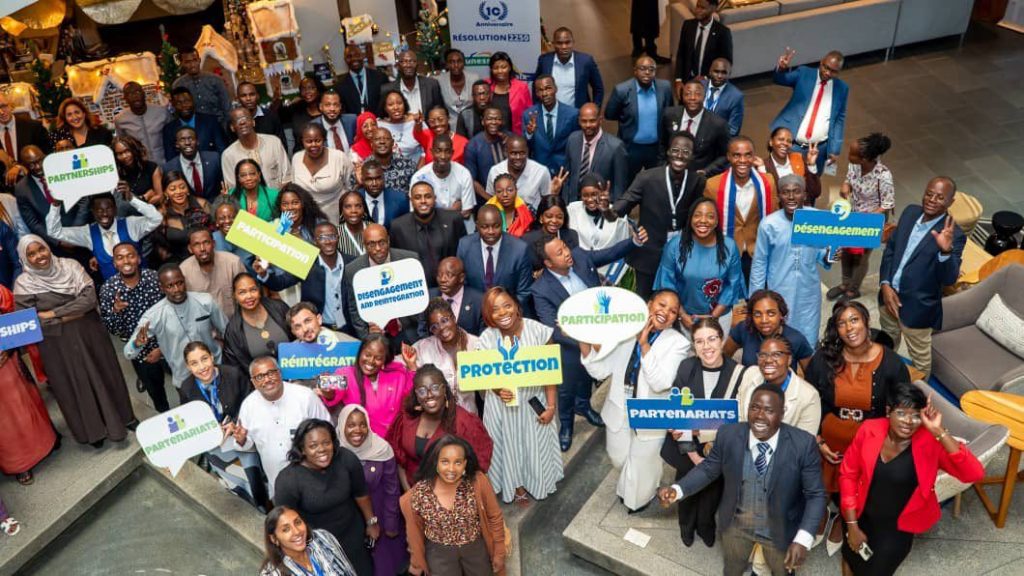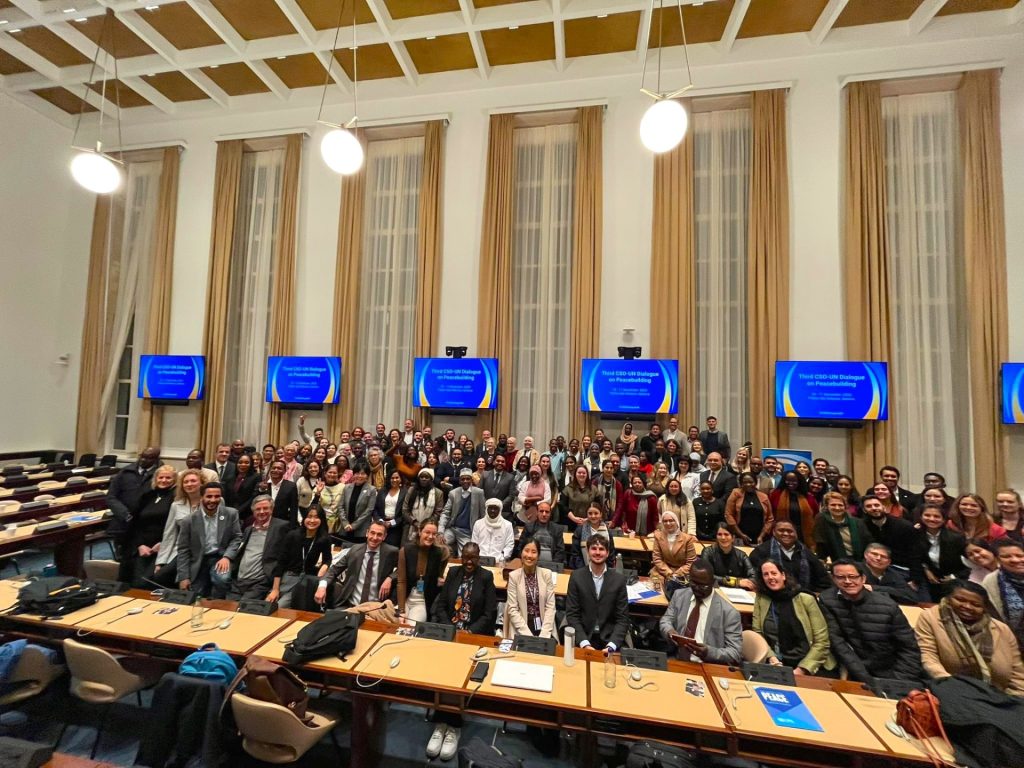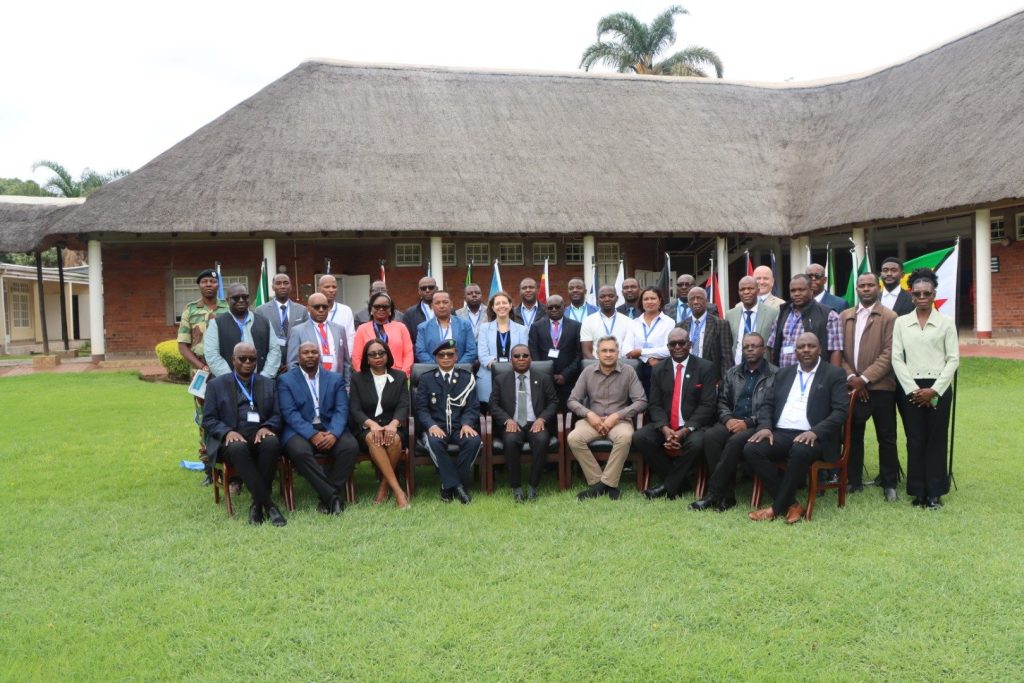ACCORD has published the outcomes from the inaugural High Level Retreat of the African Union Panel of the Wise on Strengthening Relations with Similar Regional Mechanisms in a report which is now available on the institution’s website. The 60-page report provides information on the proceedings and outcomes from the high level retreat which was convened by the African Union Peace and Security Department, in collaboration with ACCORD on 4 and 5 June 2012 in Ouagadougou, Burkina Faso.
The African Union Panel of the Wise (AU PW) is a critical pillar of the African Peace and Security Architecture. The AU PW is provided for in Article 11 of the Protocol Relating to the Establishment of the AU Peace and Security Council (AU PSC) and is tasked with supporting the AU PSC and the Chairperson of the AU Commission in the area of conflict prevention. Established in 2007, the AU PW is comprised of eminent African personalities from the five geographical regions of the continent (East, West, Central, North and southern).
The main objective of the retreat, which was attended by delegates from a wide range of intergovernmental organisations, regional economic communities (RECs), civil society organisations, governments and experts, was to strengthen relations between the AU PW and similar mechanisms at the level of the RECs. Delegates at the retreat developed eight key recommendations, namely:
- establishment of a continental network of African panels and councils of the wise that should meet regularly to discuss peacemaking initiatives and ensure coordinated approaches to preventive diplomacy, peacemaking and peacebuilding;
- ensuring a strengthened culture and practice of mediation on the African continent by the UN, AU and RECs through prioritising the finalisation of the guidelines for, and harmonisation of mediation activities;
- adoption of a regionalised approach by the UN, AU and RECs in the design of peacemaking initiatives and development of mediation mandates. There is a need to focus on regional developments in areas such as West Africa, the Mano River Union, the Horn of Africa and the Great Lakes region where conflicts that begin in one country tend to spill over into neighbouring countries;
- harmonisation of responses to conflicts on the continent by the AU and RECs, including standardisation of reactions to unconstitutional changes of power, popular uprisings and other spontaneous conflicts that have affected African countries in recent times. A unified response has the effect of reducing ambivalence and ultimately enhancing coordinated approaches to peacemaking;
- promotion of good governance by the AU and RECs through increasing efforts aimed at ensuring that member states honour their political commitments;
- encouraging greater engagement and more concerted efforts by governments and development partners to address factors driving conflict in post-conflict societies. To this end, governments should focus on strengthening social development initiatives to create an environment that addresses the root causes of conflict;
- promotion of more holistic functions of mediators and institutions of peacemaking and peacebuilding through encouraging focus on both reaching an agreement to ensure the cessation of hostilities by conflicting parties and shepherding post-conflict countries through comprehensive processes of ‘peace implementation’ which will help sustain the peace; and
- encouraging focus by mediators, including members of the panels and councils of the wise in respective continental and regional institutions, on capitalising on their unique positions which enable them to interact with politicians.
These recommendations are outlined in more detail in the report. As well as outlining delegates’ discussions and insights on current trends, opportunities and challenges in preventing and resolving conflict in Africa, the report also summarises the content of key presentations given by influential African personalities. Among others, President Blaise Compaoré of Burkina Faso shared his experiences in mediation while reflecting on the role, successes and challenges of the AU PW and former President Pedro Pires of Cape Verde spoke on ‘Intervention, African state structure and collaboration’. The report also contains an assessment of the implementation of the mandates of the AU PW and similar peacemaking mechanisms.
As the retreat aimed at and focused on strengthening relations between the AU PW and similar mechanisms on the continent, the establishment and operationalisation of the Pan-African Network of the Wise (Pan-Wise), which links the AU PW, various councils and panels from the RECs and other institutions and individuals involved in mediation activities, was a key aspect of the deliberations as well as the report.
This report forms part of ACCORD’s efforts to generate, document and effectively share knowledge that is based on multi-disciplinary practice and which contributes to the theory, policy and practice of conflict resolution, management and prevention in Africa, and to raise awareness about the conflict resolution efforts of different stakeholders on the continent.

